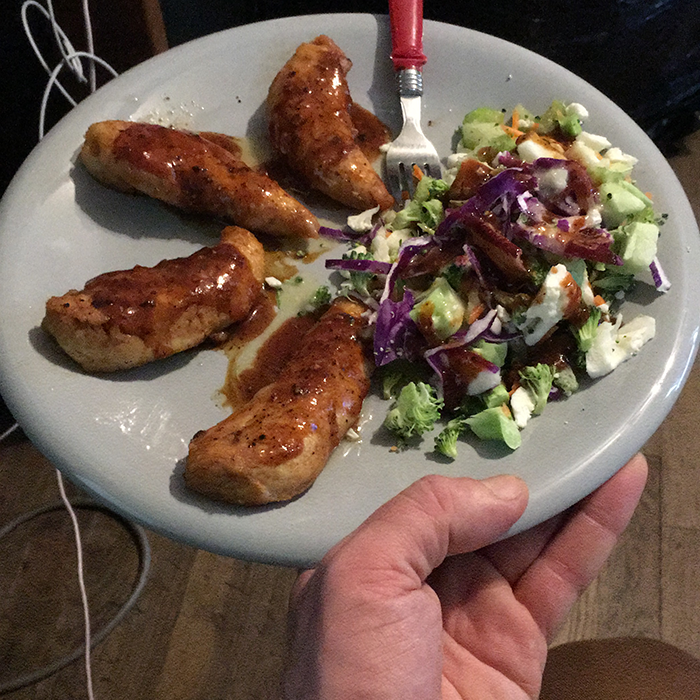“There are no office hours for leaders” -Cardinal James Gibbons
Since Casa Marianella opened its doors in 1986, it has always been open. New employees agree to work holidays, weekends, and assume at least one overnight shift each week.
After more than 12,000 early mornings spent by staff members waking in the office to the crowing of generations of local roosters, covid-19 concerns ended that streak in mid-March.
It was just one of many quick decisions made during that chaotic, unprecedented week. Naturally, there were concerns. Chiefly, would the house hold itself up without staff?
As it turned out, it didn’t just hold itself up. It put up new retaining walls and rebuilt its foundation.
Thanks to the natural leadership and talents of several residents, Casa staff are able to confidently leave the house at 7PM each day. Instead of passing the torch to the overnight staffer, a small rubber giraffe tied to the food bodega key is passed to Musa.
“Vaya pues, te paso la jirafa. Que tengas felíz noche!” (Alright then, I’m handing over the giraffe. Have a good night!)
This has come to be a perfunctory part of my exchange with Musa each time I leave an afternoon shift. The imbued meaning is mutually understood—’now you’re in charge.’
Musa came to us a few weeks before the pandemic exploded into its present monolithic state. The affable young man is from Mauritania, and exudes a cool, easy demeanor. He has no trouble understanding or speaking Spanish—he learned the language quickly during his six months in detention. He says it wasn’t hard to pick up—he already spoke French, Arabic, English, and five native tongues of Mauritania. That means there really isn’t anyone at Casa he can’t communicate with.
Musa has a practical approach. He told me that he views Casa as his home, and that he wants to take care of it like he would his own home. Staff regularly reported seeing Musa hard at work cleaning the house, spurred on only by his desire to take care of his home. If there was no obvious mess to clean up, he’d be picking up trash outside or arranging the patio furniture.
Once we decided to abandon the night shift, Musa was an obvious choice for an in-house ‘night guard.’ As a friendly polyglot who got along well with all residents, leadership came naturally to him. When Casa director Jennifer Long asked if Musa was willing to welcome overnight arrivals, take charge of distributing chores and assume general responsibility, Musa was happy to oblige.
He says that he has had virtually no problems, and that he takes great pride in his work. He hopes to stay in Austin and ultimately begin working as a carpenter, which was his primary trade in Mauritania. We’re certain that Musa will have no trouble finding work and developing meaningful ties to the Austin community!
Another part of our new protocol is the quarantining of new arrivals. Because of all the uncertainty around covid-19, we decided it’s best for everyone to separate new arrivals from the rest of Casa for ten days. While our powerhouse director of housing has arranged some great off-site locations for this, we still keep some new arrivals in the community room at Casa. One of the trickiest parts is keeping them fed without their being able to go in the kitchen.
Enter Ricardo.
A charming young man from El Salvador with a smile bigger than his face, Ricardo is a quick-witted guy with irresistible charisma. Like Musa, he arrived shortly before the pandemic. He took to the kitchen as a bird to flight. While residents often offer up portions of their cooking to staff and other residents, Ricardo’s offerings were unprecedented. He prepared meals with the love and attention reserved for those who are working their craft, not just filling a need.
He was an obvious choice for Casa’s ‘quarantine cook.’
Ricardo has prepared as many as 36 meals in a day for quarantined new arrivals. He can regularly be seen shuttling trays of beautiful meals between the kitchen and community room. He delivers with diligence and authority. He relishes the improvisational nature of being a Casa chef—we don’t have the luxury of providing whatever people want. We rely on donations from the community and the Food Bank, so Ricardo prepares what he is able to.
He has never been a professional cook. While in El Salvador, he worked late hours and didn’t want to disturb his family by waking his mother to cook for him. Therefore, he’d throw together what he could on his own. He makes up all of his own recipes.
Although he has had some difficulties with residents making unrealistic demands on his cooking (“Como si fuera un restaurante con carta completa!”), he shares Musa’s sense of pride in being able to help staff and residents through this challenging time.
Both Musa and Ricardo have been of paramount importance to the functioning of Casa Marianella. Because of the unique needs of this situation, these two young men have been able to forge an unusual working relationship with staff: while they depend on us, we also depend on them. All Casa staff is eternally grateful for their invaluable aid to the whole Casa community. Thank you, guys!!!!
—
About the author: Julian grew up in Philadelphia, and worked as a musician, writer, and bicycle messenger. He later moved to Guatemala, where he spent four years managing a used bookstore and playing in the country’s only bluegrass band. He began volunteering and later working at Casa Marianella after returning to the US in 2019. He is a full time shelter staff member and runs the Casa bicycle program. He can always be found at Casa’s monthly Convivio–where he often runs sound and occasionally plays his banjo.



An insightful
blogpost! Really gives an in-depth look at the warmth, enthusiasm, and dedication of Casa’s residents, and their critical role in helping Casa thrive during the pandemic.